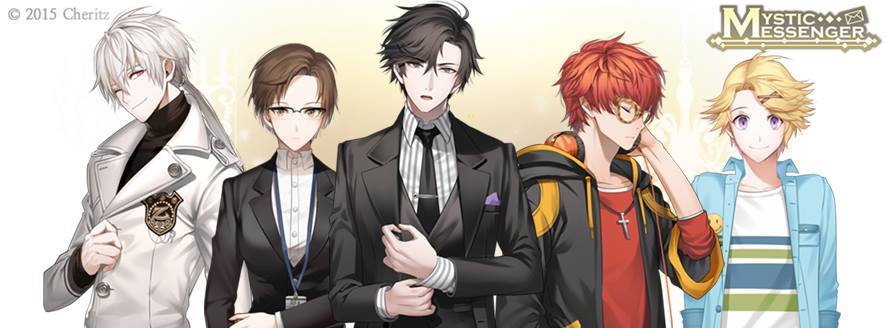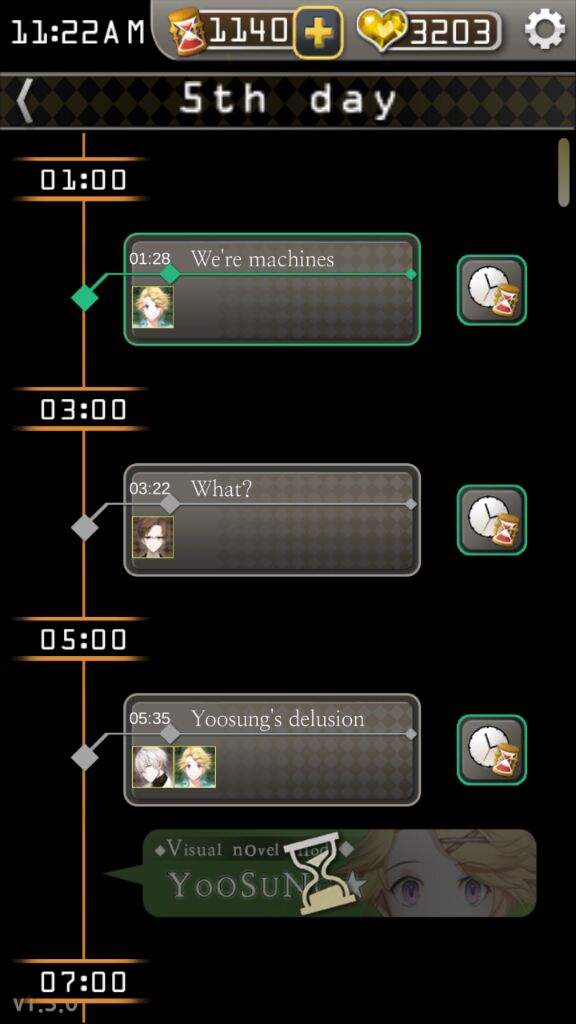While most of Joel Gn’s article, “Cute Technics in the Love Machine,” gets spent talking about the “cute” elements of dating sims (ones designed for male players), he argues that despite controversy, dating sims reinforce standard beliefs about relationships and love. Mystic Messenger, like other dating sims, also reinforce these ideas, but not in the same way Gn believes.
Gn claims that “the dating sim does not alter, but repeats and even formalizes the interactivity of love with a software construct.” Essentially, because the player’s only have certain options they can respond with, they must progress on one of the game’s paths. These paths follow general set patterns about love. For example, in MM, when romancing Zen, the player starts by talking with him frequently for several days, then they meet up with him and go on a date of sorts. Afterwards they continue to talk and plan to visit each other again. This follows the course of a regular relationships, where people talk, go on dates, and get closer over time. If the player wants a romance with Zen, they must pursue it in this way, reinforcing standard beliefs about relationships.

On the player’s “date” with Zen they look at the stars together and then the player goes home. That is the only option, thus reinforcing standard notions of romance
Gn also argues that this is a positive aspect of the games, for they play out love like real life by following the “correct” pattern to get the result you desire. Since they’re meant to simulate dating though, the problem with entering the correct algorithm is that it doesn’t necessarily follow the player’s own thoughts. In MM, a player usually has two or three option choices for dialogue. One will generally lead to a negative reaction or no reaction, while the other will lead to a positive one. As a result, the player chooses the answer which will earn a positive reaction with the character they aim to romance, not necessarily the answer they would actually say. The game then becomes more of a role-playing scenario than an actual “simulation,” because often the responses don’t align with the player’s thoughts. While the game does repeat the generally accepted values and patterns of love, it’s not making the player go through them, but instead has the player “play” a person going through them. So while the games do reinforce societal values about love and relationships, those get transferred via roleplaying rather than actual feelings.

Even if a person would normally respond with a simple good-bye, if they want approval they must respond with the top option, making the dating sim more of a role-playing game than a simulation
Sources:
Gn, Joel. “Cute Technics in the Love Machine.” InVisible Culture no. 21 (Fall, 2014). http://ezproxy.lib.davidson.edu/login?url=http://search.proquest.com/docview/1771515685?accountid=10427.



